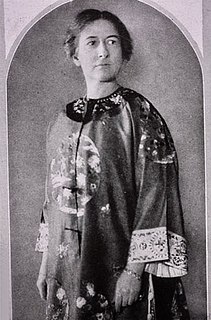A Quote by Charles Dickens
"O' course I came to look arter you, my darlin'," replied Mr. Weller; for once permitting his passion to get the better of his veracity.
Related Quotes
What should we call him?" Klaus asked. "You should call him Dr. Montgomery," Mr. Poe replied, "unless he tells you to call him Montgomery. Both his first and last names are Montgomery, so it doesn't make much difference." "His name is Montgomery Montgomery?" Klaus said, smiling. "Yes, and I'm sure he's very sensitive about that, so don't ridicule him," Mr. Poe said, coughing again into his handkerchief.
Mr. Moony presents his compliments to Professor Snape, and begs him to keep his abnormally large nose out of other people's business. Mr. Prongs agrees with Mr. Moony, and would like to add that Professor Snape is an ugly git. Mr. Padfoot would like to register his astonishment that an idiot like that ever became a professor. Mr. Wormtail bids Professor Snape good day, and advises him to wash his hair, the slimeball.
His [Pitt's] successor as prime minister was Mr. Addington, who was a friend of Mr. Pitt, just as Mr. Pitt was a friend of Mr. Addington; but their respective friends were each other's enemies. Mr. Fox, who was Mr. Pitt's enemy (although many of his friends were Mr. Pitt's friends), had always stood uncompromisingly for peace with France and held dangerously liberal opinions; nevertheless, in 1804, Mr. Fox and Mr. Pitt got together to overthrow Mr. Pitt's friend Mr. Addington, who was pushing the war effort with insufficient vigor.
When anyone is going wrong, it is a mistake to warn him not to go further. It is also a mistake to leave him alone. The proper course is to call his attention to something better, and frame our conversation in such a way that he becomes wholly absorbed in the better. He will then forget his old mistakes, his old faults and his old desires, and will give all his life and power to the building of that better which has engaged his new interest.
"Vell," said Mr. Weller, "Now I s'pose he'll want to call some witnesses to speak to his character, or p'raps to prove a alleybi. I've been a turnin' the bis'ness over in my mind, and he may make his-self easy, Sammy. I've got some friends as'll do either for him, but my adwice 'ud be this here-never mind the character, and stick to the alleybi. Nothing like a alleybi, Sammy, nothing."
There are four simple ways for the observant to tell Mr. Croup and Mr. Vandemar apart: first, Mr. Vandemar is two and a half heads taller than Mr. Croup; second, Mr. Croup has eyes of a faded china blue, while Mr. Vandemar's eyes are brown; third, while Mr. Vandemar fashioned the rings he wears on his right hand out of the skulls of four ravens, Mr. Croup has no obvious jewelery; fourth, Mr. Croup likes words, while Mr. Vandemar is always hungry. Also, they look nothing at all alike.
He remembered having said to his uncle (with a solemn dogmatism better befitting a much younger man): "Surely it is possible to love with the head as well as the heart." Mr. Delagardie had replied, somewhat drily: "No doubt; so long as you do not end by thinking with your entrails instead of your brain.
Mr. Balanchine was a great gentleman, and he loved his dancers. He was devoted to his company. He came to the ballet every night, and his presence was felt. It was like the whole company was dancing for him. And if he liked you, he trusted you to be yourself. He didn't try to change you and make you into something you were not.
He who is himself crossed in love is able from time to time to master his passion, for he is not the creature but the creator of his own misery; and if a lover is unable to control his passion, he at least knows that he is himself to blame for his sufferings. But he who is loved without reciprocating that love is lost beyond redemption, for it is not in his power to set a limit to that other's passion, to keep it within bounds, and the strongest will is reduced to impotence in the face of another's desire.




































